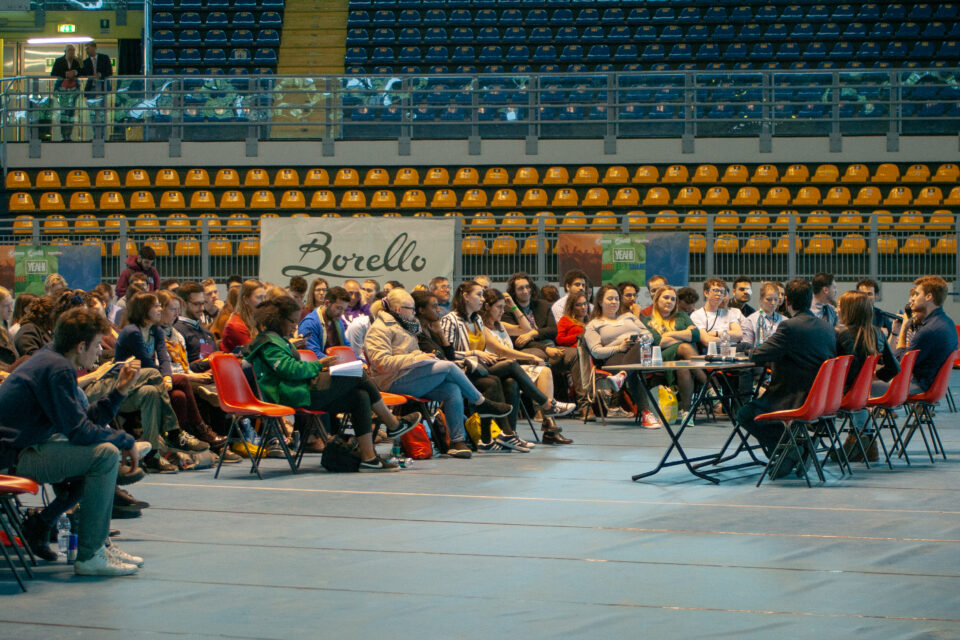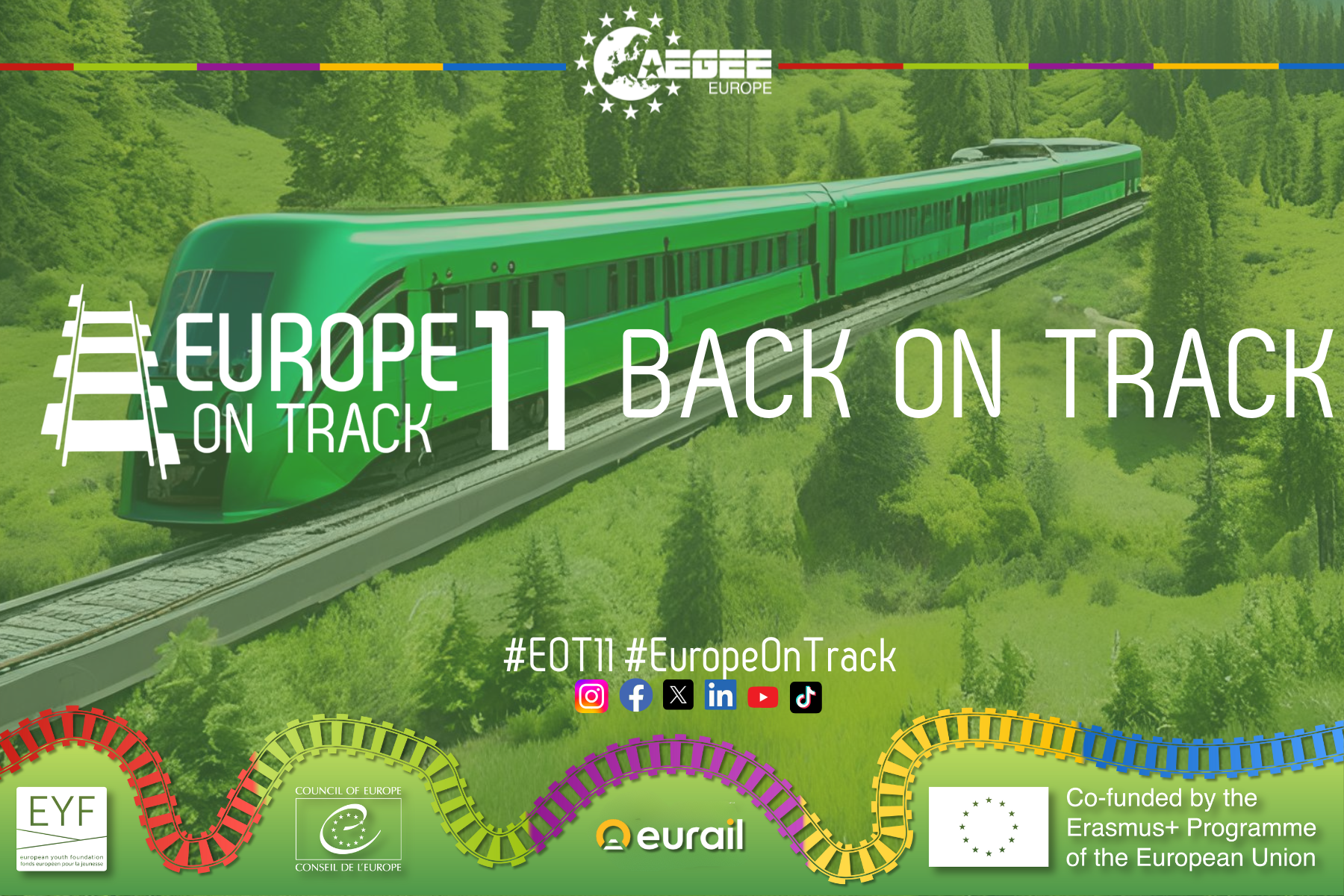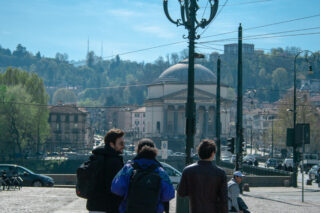
Nietzsche who claimed that god is dead described #TeamBlue’s next city, Torion, as very lively. The former capital of the Kingdom of Sardinia and the Kingdom of Italy lays in the famous vine region Pietmont and is home big companies such as Campari, Ferrero or Fiat. It’s a major European crossroad for industry, commerce and trade as it is part of the famous “industrial triangle” along with Milano and Genova.
After having talked to Highschool classes and before leaving for the final Y-Vote conference, we made our way to the Piazza Castello to join the #FridaysforFuture protest. If you’ve ever been to a #FridaysforFuture protest before you know the picture: hundreds of young people skipping school on a Friday, coming together to protest, caring colourful posters, raising awareness for the rising climate and demanding climate action. While the protest was slowly starting we spoke to Carola (18) and Teresa (19) about the development of the movement.
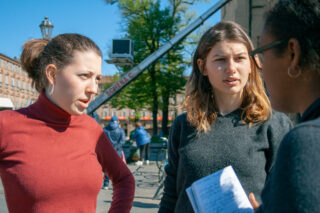
The protest in Torino started with the 15th of March – the international climate strike day – where 30.000 people came together at the Piazza Castello. Ever since the youngsters meet every Friday for the protest and every Wednesday for an assembly to plan further actions. A diversity of working groups developed in the past weeks. These organize artistic activities, actions on consumer behaviour, the protest’s social media presence, big events such as occupations and action environmental sensibilization for example in schools. Carola tells us that during the assembly you’ll find primarily students as #FridaysforFuture was born as a student’s movement and in Torino the group identifies different opportunities for students as for other age groups. Though protest is open to everyone and on Fridays everyone should come together they believe. To them striking on the same day globally carries a lot of power, and this internationality both consider to be the movement’s biggest strength. In their own community, the ecological topic that concerns them most is the burning of waste and the health effects people living around the burning facilities consequently suffer from. “The need for action is great”, Teresa says, “and there are many ways to go about that. Going out to demonstrate on Fridays is only one way”.
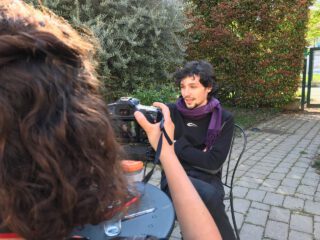
On to another example for action-taking – the final Y Vote conference. For anyone who doesn’t know what Y Vote is: Like EuropeOnTrack, it’s a project under the MyEuropeMySay umbrella. For the past month Y Vote had gathered young people from all over Europe at conventions to develop recommendations for the next European parliamentarians on the topics of the past European Youth Agenda: employment & entrepreneurship, creativity & culture, education & training, participation & society, social inclusion, youth and the world and lastly health & wellbeing. When our conversation with the content manager Leonardo (20) diverted to the question how to involve more young people in political processes and foster sustainable youth engagement he praised #FridaysforFuture for their unmissable presence in society. From his point of view striking has something spontaneous and out of the ordinary that attracts people and clearly conveys the urgent need for action. On the hand, when he looks at the sustainability of the movement he advocates that for the movement not to die out of fatigue, a golden middle between structured work and spontaneity needs to be strived for. Referring to his experiences with #PulseOfEurope he highlights the importance of development within movements: “People get bored from the most important topics and they’re kept by the magical spirit of movements, so there is a need for constant innovation”.
The conversation brings up critical questions: what does one expect from the protests? Inspiration? The protesters implementing their knowledge? Formulated demands? Concrete policy plans? Budget recommendations? Finally, #FridaysForFuture is a youth-led movement that politicizes young people globally and sensitizes the international community for the catastrophe that is awaiting us if we continue to put this little effort into reaching the Paris agreement. The movement is criticized for their method of striking and it’s said that they don’t have a plan. From the conversations with Carola and Theresa and my personal experience that’s not a bad thing as the movement never presented itself as the final climate change fixers. Furthermore, that would mean that it’s also okay that on a global level there is no joint list of demands as you might find on the national level e.g. Germany.
The student-led protest movement #FridaysforFuture isn’t aiming for the reconstruction of youth participation but the youngsters that make the movement do their part in creating a society in which climate action is taken. And if we’re unhappy about how that it’s done, it’s on us to reach out and rethink.
To reach out and rethink was also on our agenda the following agenda as we participated in the YEAH! Festival that brought together a diversity of young people to exchange best practices and have a dialogue with running MEPs from a diversity of parties.
